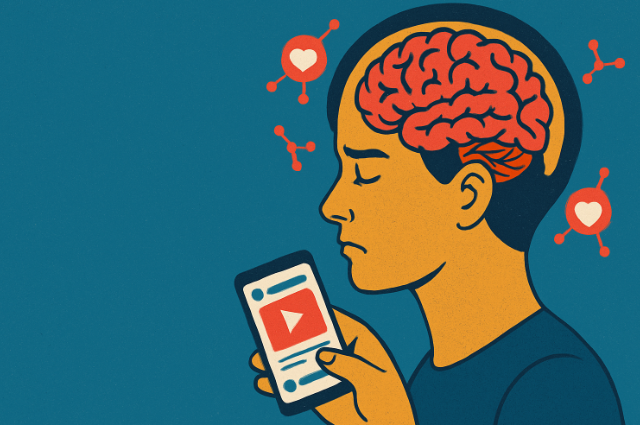
“Darling, hold my hand.. Nothing beats a Jet2 holiday...”
If you are like me and the majority of people in the social media era, your brain is already singing the rest of the lines when your eyes land on the first word itself. Our brains have come to love the dopamine boost, which we get each time a reel with this audio comes on our feed. And minutes turn into hours, and alarms often go unheard. Important tasks remain unfinished as we doomscroll our Instagram reels section. Our low attention span hinders us from maintaining focus on the task we have on hand. And doing something that does not stimulate you in seconds has come to seem like a burden to us. Words like ‘ohio’, ‘rizz’, and ‘skibidi toilet’ have taken over the internet, and the new generation loves using them.
Maybe even the one reading this article may not possess the attention span and may just scroll away. But if you are like me, suffering from the consequences of excessive screentime, this article talks about the consequences of brain rot and lists effective ways to help overcome it. Or at least it may help you to overcome the need to constantly check your phones.
What is brain rot?
“Brain rot” is a colloquial term used online, describing the negative, cognitive, emotional, and behavioural effects of excessive, mindless consumption of low-quality digital media, especially short-form content. The term gained popularity in 2024, and the Oxford University Press named it their Word of the Year.
The negative impacts of excessive screentime include difficulty focusing, mental exhaustion, and a decline in cognitive abilities.
The constant exposure to low-quality content, especially short-form videos and social media trends, may not expose individuals to a wide range of vocabulary or complex sentence structures. This can lead to a stagnation of vocabulary and a preference for simpler language.
How is it affecting us: The symptoms?
The constant scrolling of the short-term content releases the chemical dopamine, which is responsible for our pleasure, into our bloodstream. And eventually, our brain gets rewired or used to the constant bursts of dopamine and gets addicted to the stimulating activity of consuming this content. In a study, it was found that the attention span of people, which was estimated to be 2.5 minutes in 2003, has reduced to just 47 seconds in recent years. Low attention spans greatly affect our focus and make focusing on a single task for long periods a strenuous task.
A MIT study found that the brains of children who use Chat-GPT for their assignments and homework records flatter brain activity. Gone are the times when children spent hours researching the concepts and developing their understanding around them. The easy access to information online discourages deeper analysis and critical evaluation, leading to a reliance on surface-level understanding. This impairs critical thinking in them. While adapting to new technology is not wrong, we must take advantage of the new technology in gaining knowledge and making our tasks easier, and not let it do our job.
The brain struggles to retain information when constantly bombarded with new stimuli, which affects our long-term memory. As we scroll through content in a matter of seconds, our brain does not get enough time to process the new information, and it often gets lost. The growing impatience causes anxiety in our minds, and we crave the stimulation.
Excessive online time can reduce real-life interactions, leading to feelings of loneliness and isolation. And then the person feels stuck in the endless loop of the content that the social media algorithms use to keep them engaged and hooked.
How to overcome it?
A recent study found that we scroll a distance that is equivalent to four times the height of Mount Everest in a year. We have to be mindful of our consumption and limit our screentime. Setting limits on screentime and engaging in offline activities are the crucial primary steps.
There is a need for dopamine rebalancing in our bodies. Our brains, which are used to the constant stimulating activity, must be rewired. We have to spend time doing nothing, like simply sitting or meditating, and get our brains used to it. This will help in reducing our addiction as our brains do not get constantly bombarded with dopamine-inducing content.
Pursuing mentally challenging activities like reading, learning a new language or engaging in a hobby may seem hard at first, but taking small baby steps towards it will build up eventually. This will help restore cognitive function.
A study from the University of Michigan reports that approximately 210 million people globally suffer from social media and internet addiction. All of the activities, like limiting screen time, spending time for offline activities, if done constantly, can significantly help you to overcome the dire consequences of consuming brain rot content. Brain rot highlights the importance of striking a balance between digital engagement and offline activities to maintain cognitive and mental well-being.
